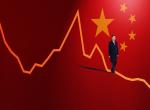In this six month long mercurial quest for the treatment of SARS-CoV-2 infected patients, winners are far from declared. Among the various antiviral treatments tested or deployed to inhibit the viral growth, hydroxychloroquine has had an unparalleled head-turning effect across countries. The confidence of its propagators has remained undeterred despite the overriding focus on the adverse effects of this treatment on patients. Chloroquine and hydroxychloroquine are the two synthetic derivatives of the first ever anti-malarial agent quinine -recognized 100 years ago. And for decades these anti-malarial agents have been recognized for their beneficial use in various other diseases apart from malaria.1
In an early study, the Chinese verified the significant effect of Chloroquine, both in terms of clinical outcome2 and viral clearance.3 Later on, French doctors took to hydroxychloroquine (an analogue of Chloroquine), which is known for a better safety profile owing to its reduced toxicity, to assess its effectiveness on COVID-19 patients. In a clinical survey, the patients received 600 micro gram of hydroxychloroquine combined with azithromycin (an antibiotic known to many as “Z-Pak). The study reported that after six days of this regimen, all six asymptomatic people tested negative for the virus while others showed a significant reduction of the viral carriage.4 Zinc, which is general stimulator of antiviral immunity, is also suggested as a part of the therapy in some studies. The main crusader of this therapy, Didier Raoult, is a contrarian microbiologist who is known to be an infectious-disease specialist. He claims to have cured 98.7% (under 74) Covid-19 patients with this two drug cocktail at his institute in Marseille, France.5 The day after Raoult’s study was published, the President of the United States, Donald Trump, took to twitter to declare this drug combination as having a real chance to be one of the biggest game changers in the history of medicine.6
HCQ in Theory
Hydroxychloroquine (HCQ), even as it made the headlines, has become the point of contention among researchers looking for a cure against the novel virus. In theory, the drug’s immunomodulatory effects can help modulate a person’s immune response to the virus. While it’s antiviral effects are attributed to the alkalinisation of cells that block viral replication in the cell. In trials previously conducted for SARS-CoV-1, chloroquine was shown to inhibit the replication and spread of coronavirus in vitro and to prevent infection with hCoV in newborn mice.7 This makes HCQ a potent drug for SARS-CoV-2 as verified from laboratory tests.
Simultaneously, some studies have explored the existing contra-indications of anti-malarials in known hypersensitivity and in patients with a history of heart conditions, retinopathy or liver dysfunction.89
Premature Dismissal
Despite all the initial positivity around this existing drug therapy, there was increasing incidence of scientific studies which suggested otherwise. The picture which emerged later indicated that the treatment does not appear to be helping patients at all, and might even be causing harm.10 Three large randomised controlled trials, in Britain, America and Spain, found no benefit from hydroxychloroquine in treating COVID-19.11 On 22 May 2020, a venerable British medical journal, the Lancet published a revealing study which concluded that the use of HCQ led to a substantial increase in mortality rates—around 30 percent—and the occurrence of cardiac rhythm disorders in these COVID-19 patients. This was the first large scale study backed by data to prove ill effects of this treatment. It spurred great skepticism against the ongoing trials with HCQ, which were suspended (now resumed), by the WHO. This was soon followed by bans on the use of HCQ to treat COVID-19 by France, Belgium, and Italy.12
Many scientists and doctors were rather quick to dismiss the drug based on this study alone, which was in fact released through a preprint publication. This means that the paper had bypassed the customary steps mandated for scientific publications including an independent scrutiny (peer-review), to expedite the publication in times of pandemic. However on further review, the authors of this paper failed to prove the authenticity of the data and thereby the inference drawn from this study. The Lancet retracted this study on 4 June 2020, within a month of its publication.13 The Chicago-based healthcare startup, Surgisphere, which provided the data for this study removed all the content from its website which reads that the motto of the firm is to harness the power of data analytics to “improve the lives of as many people as possible”.14
This debacle has exposed gaps which had been deflected for the purpose of swift decision making at times like this. Our hopes with machine learning, artificial intelligence and big data to empower better decision making cannot be realised without the availability and reliability of the data itself. Most importantly, a cursory review of scientific papers can be highly risky for a large unspecified population. Speed is appreciated at the time of a pandemic as long as it does not cost lives.
Sound and Steady Research
Under the present circumstances, this retraction offers reasons to avoid hasty decisions influenced by overblown global debates. In this regards, India has been amongst the few countries which has used what is best available in the markets and well-known to the doctors, to its advantage. Instead of siding by one or the other studies, India initiated the study on HCQ under its ‘Pharmaco vigilance’ program. The National Task Force for COVID-19 and other study groups have reviewed the prophylactic use of HCQ based on the emerging evidence on its safety and efficacy.15
The Indian Council of Medical Research (ICMR) has consistently favoured the use of HCQ as a preventive medication for high risk population in the pandemic. This includes the asymptomatic health care workers, high risk contacts of the positive cases as well as paramilitary/police personnel involved in coronavirus infection-related activities. However, the council has continued its research on the guidelines for the intake of this medication so it does not instill a sense of false security.16
The drug is declared to be relatively safe under strict medical supervision. In it’s latest advisory issued by the council, although electrocardiogram (ECG) has been mandated prior to the use of HCQ and in case of any cardiovascular symptoms. The drug is not to be recommended for prophylaxis in children under 15 years of age and in pregnancy and lactation. Most importantly, the dosage (often associated with the safety of this treatment) of 400 micro grams is prescribed in the guidelines.17
Endnotes
- "Hydroxychloroquine: From Malaria to Autoimmunity ...." 8 Jan. 2011, https://link.springer.com/article/10.1007/s12016-010-8243-x. Accessed 17 Jun. 2020.
- Clinical outcomes are broadly agreed, measurable changes in health or quality of life that result from a particular treatment.
- "Hydroxychloroquine and azithromycin as a treatment of ...." 20 Mar. 2020, https://www.sciencedirect.com/science/article/pii/S0924857920300996. Accessed 15 Jun. 2020.
- ibid
- "Raoultmania - A French doctor finds fame promoting malaria ...." 11 Jun. 2020, https://www.economist.com/europe/2020/06/11/a-french-doctor-finds-fame-promoting-malaria-pills-for-covid-19. Accessed 17 Jun. 2020.
- "Hydroxychloroquine: What's Known About Treating the ...." 6 Apr. 2020, https://www.theatlantic.com/health/archive/2020/04/hydroxychloroquine-trump/609547/. Accessed 17 Jun. 2020.
- Supra 1
- ibid
- Supra 6
- "The search for a covid-19 treatment - Hydroxychloroquine is ...." 13 Jun. 2020, https://www.economist.com/science-and-technology/2020/06/13/hydroxychloroquine-is-embroiled-in-yet-more-controversy. Accessed 14 Jun. 2020.
- Supra 5
- "The Lancet's COVID Fiasco | Hoover Institution." 8 Jun. 2020, https://www.hoover.org/research/lancets-covid-fiasco. Accessed 17 Jun. 2020.
- ibid
- Supra 10
- "New Guideline: ICMR expands use of Hydroxychloroquine ...." 23 May. 2020, https://medicaldialogues.in/news/health/government-policies/new-guideline-icmr-expands-use-of-hydroxychloroquine-adds-ecg-as-prerequisite-details-66055. Accessed 17 Jun. 2020.
- ibid
- Ibid
(The paper is the author’s individual scholastic articulation. The author certifies that the article/paper is original in content, unpublished and it has not been submitted for publication/web upload elsewhere, and that the facts and figures quoted are duly referenced, as needed, and are believed to be correct). (The paper does not necessarily represent the organisational stance... More >>
Image Source: https://scroll.in/latest/962704/covid-19-centre-expands-use-of-hydroxychloroquine-for-asymptomatic-frontline-workers











Post new comment